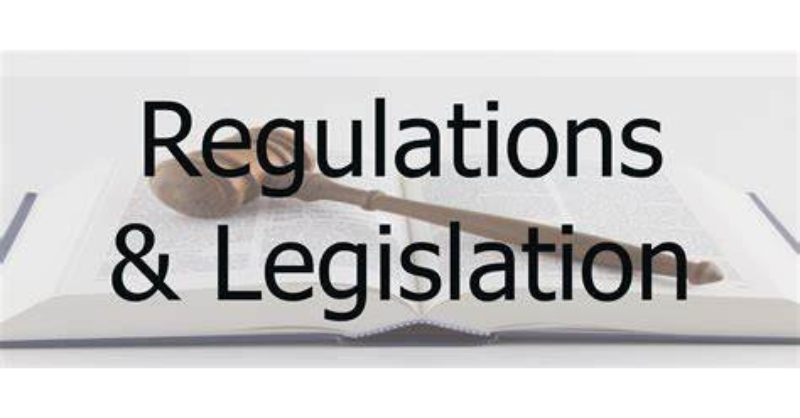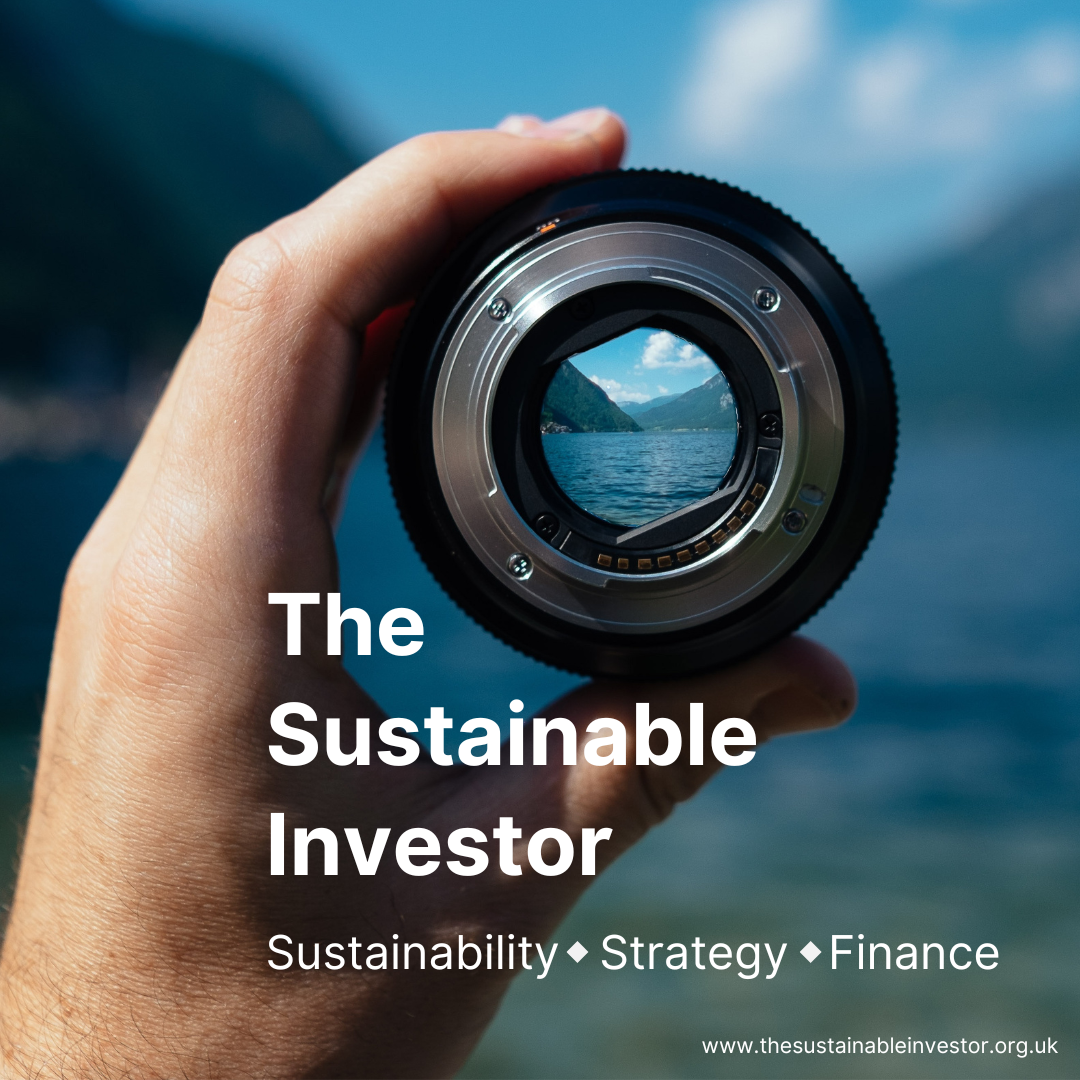
Sunday Brunch: how much can we rely on regulation?
Is more regulation always the best answer? Given that so much of it seems to be either failing to produce the outcomes we want, or not even making into the statute books, do we need a rethink?
"While I am absolutely unequivocal about sticking to the commitment to reach net-zero by 2050, I want to take a more pragmatic, proportionate and realistic approach" UK Prime Minister Rishi Sunak on his governments revised net zero plans (September 2023)
One of the key levers for driving sustainability change is regulation. The logic is simple and clear. Many of the actions needed to deliver the sustainability transitions, such as achieving net zero, impose costs. Expecting companies to take unilateral action exposes them to financial risks, especially if no-one else follows them. So, regulation creates a level playing field.
And we can all point to examples where it has worked. For instance, the US Environmental Protection Agency (EPA) has had some notable successes, including around water and air quality. But, not all regulation is successful. Some gets reversed, some fails. And other policies never actually make it to the detailed regulation stage.
And this creates a challenge for companies and for investors. Anticipating and preparing for future regulation can create an important source of competitive advantage. And provide insurance against companies 'fading away and disappearing'. But, how do you prepare for future regulation in an environment of uncertainty around what will actually get agreed? And even if it is agreed, how actively and effectively it will be enforced?
These are not trivial questions for companies and investors. Regulation is a really important sustainability lever. But we weaken the drive for change if it's badly drafted. Or if politicians are unable, or unwilling, to create the necessary consensus.
If you want to read the rest and are not already a member...

How much can we rely on regulation?
Or governments change their minds.
In 1996 the UK government privatised Railtrack, the company set up to control the countries railway infrastructure. Just over five years later, the company was placed in administration, and by October 2002, the company was declared insolvent, and it's assets taken over by a new government owned entity called Network Rail. Investors lost all of their equity.
There were all manner of contributing factors to this corporate failure, including management actions, various railway accidents, and a confused privatisation strategy. But one major contributory factor was a failure of the regulatory process.
And we have seen this again in the recent scandals over the privately owned UK water utilities. There is a widespread view that weak regulation has been an important contributor to what a recent committee of MP's has called the contamination of England's rivers by a "chemical cocktail of sewage, agriculture and road pollution". Even if you were a water utility who wanted to move toward a more sustainable business model, the regulatory structure and incentives pushed you the other way.

And some regulatory regimes don't even get past GO.
They get blocked well before implementation. In a recent blog we highlighted the reversal of EU proposals on pesticides. The aim was a good one - to cut pesticide use in Europe. Research tells us that while pesticides can be useful in moderation, they also cause harm to people and the environment. We can make do with less of them.

In this case we suspect that one of the underlying problems was a failure to fully appreciate the challenge from the farmers perspective. We have frequently highlighted that many farmers, even in Western Europe, live financially precarious lives. Many of them earn low incomes, and a bad year can have serious repercussions. Even if we can 'prove' that the proposed change is good for them in the long run, they are often poorly resourced for the transition period, and they often fear (and hence over-state) the costs involved.
The end result is that little or no change actually happens, even when the outcome being aimed for is a good one. As we argued in a recent Sunday Brunch - who pays, and how much, really matters.

And then we have political horse trading
It's not just a lack of consideration of the losers that damages regulation. Sometimes politicians say they agree, and then they change their minds. Often for short term political gain.
We seem to be potentially heading for this outcome on the EU Supply Chain law. This had the aim of preventing and addressing human rights and environmental harm throughout companies’ supply chains. A really worthy aim that most in society would support.
As Human Rights Watch reported, it's been clear for a long time that the current voluntary codes have not been working. So regulation was needed. And after three years of discussion, the draft law (the Corporate Sustainability Due Diligence Directive) was agreed by the EU Council and the European Parliament.

This regulation was nearly at the last stage of the process. But for reasons that seem to be mostly about domestic politics, one of the partners in the current German Federal government coalition (the Freie Demokratische Partei, or Free Democratic Party), withdrew it's support. This means Germany would probably have to abstain in the final vote. An odd situation given that they had recently adopted its own (similar) supply chain law. This might not totally kill off the directive, but it will make it much harder for it to pass quickly (if at all).
And there are some who believe that this is just the beginning of a roll back process. There may be a similar challenge for the EU Packaging and Packaging Waste Regulation (PPWR). Recycling and Waste Management is reporting that ... "Germany's finance minister Christian Lindner has reportedly promised the Italian government help in blocking the PPWR in return for Italy helping Germany to build a blocking minority for the Corporate Sustainability Due Diligence Directive (CSDDD)."

There is a common thread running through many of these situations. New regulation is proposed. A group (companies or individuals) identify that they will suffer some sort of financial loss. They feel their interests have been ignored, so they lobby hard, or maybe take to the streets. The politicians 'change their minds' and either the regulation gets watered down to the point where it's inadequate, or it gets abandoned all together.
How do investors respond to this prevarication?
Many people say to us, this is just how the political process works. It's a series of compromises and setbacks. And we get this.
In this situation companies increasingly do the sensible thing, they wait. They decide that there is so much uncertainty about when the regulation will happen, and in what format, that they delay making investment decisions. Even for investments that would make good long term value creation sense, such as improving human rights.
This is not a argument for no regulation
We know that regulation is an important tool for expressing the will of society, and for creating change. And in many cases it's the only effective lever we have. But, purely from an 'effectiveness of outcomes perspective', we have to ask if we are trying to do too much too quickly.
Should we be asking, could we deliver this outcome another way, maybe through financial aid? This approach seems to have worked well in China, with EV's and renewables. The obvious challenge to this approach is that it makes the cost obvious. When governments have to directly pay some of the cost of the transition, it's harder to pretend that this is a pain free process. But then maybe having that debate would be a good thing.
And we may find that companies and investors find this hybrid approach easier to support. It's often not well understood, but companies value certainty. They would rather have better visibility on how markets will operate, especially if the new approach creates a level playing field. Even if there are costs to be incurred.
Something a little more bespoke?
Get in touch if there is a particular topic you would like us to write on. Just for you.
Contact us
Please read: important legal stuff.



